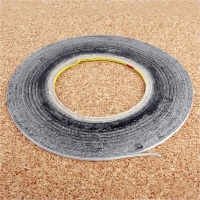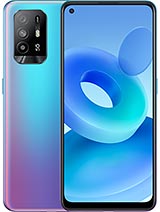 Repair parts Oppo A95 5G
Repair parts Oppo A95 5G

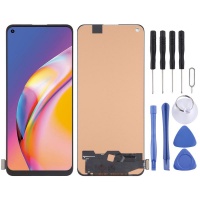
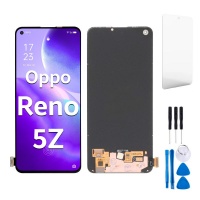
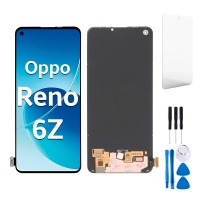
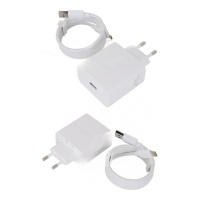
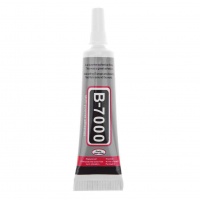
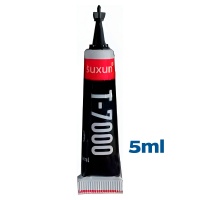

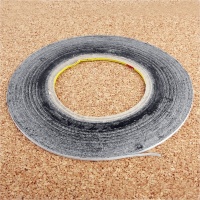
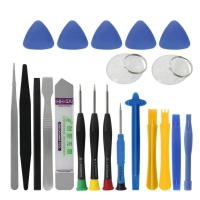
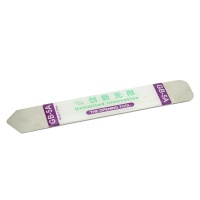
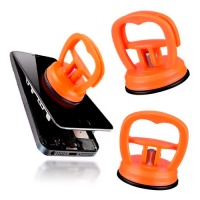
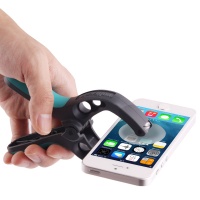
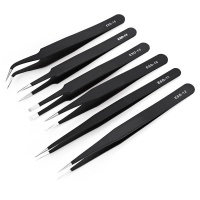
Receive it on tuesday 24 de february
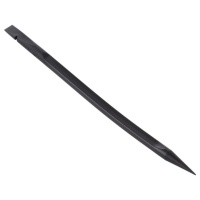

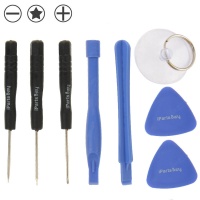
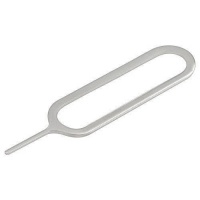
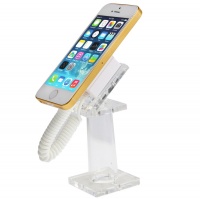
🛠️ Oppo A95 5G Spare Parts: A Complete Guide to Giving Your Mobile a New Lease of Life 📱
The Oppo A95 5G is a smartphone that has successfully carved out a niche in the market thanks to a remarkable balance between performance and price. However, like any electronic device, it's not immune to accidents or wear and tear from continuous use. From a cracked screen to a battery that no longer holds its charge as it used to, several reasons can lead a user to look for spare parts. At iLevante.com, we understand the importance of keeping devices in perfect working order, which is why we offer this detailed guide on spare parts and components for the Oppo A95 5G (model PELM00), designed for the average user кто wishes to repair or upgrade their device.
🔬 An In-Depth Look at the Oppo A95 5G (PELM00): A Glimpse Inside
Before diving into the world of spare parts, it's fundamental to understand the main features of the Oppo A95 5G. This knowledge not only helps in better understanding how the device works but also in identifying the necessary part with greater accuracy.
⚙️ Key Device Features
The Oppo A95 5G (identified by model code PELM00) is a device running Android 11 with the ColorOS 11.1 skin. Inside, it's powered by a MediaTek Dimensity 800U MT6853V processor, a 7nm octa-core chipset offering good performance and 5G connectivity. This processor is supported by 8GB of LPDDR4X RAM, ensuring smooth multitasking. Regarding internal storage, there are 128GB and 256GB variants, with the option to expand via a microSDXC card.
Battery life is crucial, and the Oppo A95 5G features a 4310 mAh Li-Polymer battery, compatible with 30W fast charging, capable of reaching 100% in approximately 48 minutes. For photography, it boasts a triple rear camera setup: a 48MP (f/1.7) main sensor, an 8MP (f/2.2) ultra-wide-angle lens, and a 2MP (f/2.4) macro lens. The front-facing camera, for selfies and video calls, is 16MP (f/2.4).
🎨 Design and Screen: First Impressions Count
The Oppo A95 5G showcases a stylish design, with dimensions of 160.1mm in height, 73.4mm in width, and a slim profile of just 7.8mm, weighing 173 grams. It is available in several colours, such as Silver, Fluid Black, and Cosmo Blue.
The screen is undoubtedly one of its most remarkable components. It's a 6.43-inch AMOLED display with FHD+ (1080x2400 pixels) resolution. This technology offers vibrant colours, deep blacks, and a good level of brightness (up to 800 nits peak). The aspect ratio is 20:9, and it has a pixel density of 409 ppi, along with an in-display optical fingerprint sensor. The refresh rate is 60Hz, with a touch sampling rate that can reach 180Hz in game mode. It's important to note that the touch sampling rate information corresponds to the Oppo A95 4G model, but 180Hz is confirmed for the A95 5G.
🖼️ The Screen: Your Window to the Digital World (and How to Repair It)
The screen is the component we interact with most and, therefore, one of the most susceptible to damage. A drop, a knock, or even excessive pressure can cause anything from scratches to a completely shattered panel.
💔 Common Screen Problems
The most common issues that may require a screen replacement include:
- Cracked or shattered glass: This is the most obvious and common damage after a fall.
- Dead or stuck pixels: Small black, white, or fixed-colour dots on the screen.
- Coloured spots or lines: Visual alterations that distort the image.
- Black screen but the mobile works: Indicates a display failure even though the rest of the system is operational.
- Touch problems: The touch panel doesn't respond, responds erratically, or registers non-existent touches ("ghost touches").
- Light bleed or "clouding": Unevenly brighter areas, particularly noticeable on dark backgrounds.
✨ Types of Replacement Screens: A World of Options
When it's time to change the Oppo A95 5G's screen, the market offers various qualities and technologies. It's crucial to understand the differences to make an informed decision. The Oppo A95 5G originally comes with an AMOLED screen.
- TFT LCD (Thin-Film Transistor Liquid Crystal Display) Screens: This is a more budget-friendly option. They use a constant backlight, which can result in less deep blacks (more greyish) and higher power consumption compared to AMOLEDs. Viewing angles may be more limited and colours less vibrant. Although cheaper, the image quality is lower than the A95 5G's original. They are more resistant to long-term pixel degradation than AMOLEDs. GSM Parts Centre lists "TFT Quality" screens for the A95 5G.
- INCELL Screens: This technology integrates the touch panel and the LCD into a single layer, resulting in thinner screens than traditional TFTs and better touch response. However, being an LCD-based technology, the colour and contrast quality don't reach AMOLED levels. Some suppliers offer INCELL screens for the Oppo A95 5G, promoting them as a good quality option at a competitive price. It's important to note that INCELL screens for Android devices can be thicker than original AMOLEDs, which could complicate their installation and fit within the phone's chassis.
- OLED (Organic Light-Emitting Diode) and AMOLED (Active-Matrix Organic Light-Emitting Diode) Screens: This is the original technology of the Oppo A95 5G. Each pixel emits its own light, allowing for true blacks (pixels turned off) and infinite contrast, as well as more vibrant and saturated colours. They consume less power, especially with dark backgrounds, and offer excellent viewing angles. AMOLED screens are a variant of OLEDs with an active matrix that improves pixel management. MobiSpares offers OLED assemblies for the A95 5G. OLED screens can be "Hard OLED" or "Soft OLED". "Hard OLEDs" are more rigid and can be more fragile if dropped, while "Soft OLEDs" use flexible plastic substrates, offering greater durability and the possibility of curved designs, although they are generally more expensive.
- Original Screens (Service Pack): These are screens manufactured by Oppo or its authorised suppliers, guaranteeing the same quality, performance, and compatibility as the factory-fitted screen. This is usually the most expensive option but offers the peace of mind of a perfect repair. Mister Mobile in Singapore mentions offering Grade A screens, equivalent to originals.
When choosing, one must consider budget and quality expectations. For a visual experience identical to the original, an AMOLED or Original Service Pack screen is ideal. INCELLs can be a good compromise between cost and quality, while TFTs are the most economical option, albeit with visual sacrifices.
🔧 How to Replace the Oppo A95 5G Screen? (Basic Guide)
Replacing the screen is a delicate process that requires patience and the right tools. While it's always recommended to seek a qualified technician if you lack experience, here are the general steps:
- Preparation: Completely switch off the device. Gather your tools: precision screwdrivers, plastic plectrums (or opening tools), a suction cup, a heat gun or hairdryer, and the new screen.
- Heating and Opening: Gently heat the edges of the back cover (if access is from the rear) or the screen edges to soften the adhesive. Use a suction cup to create a small opening and insert a plastic plectrum to cut the adhesive around the perimeter, being careful not to damage internal flex cables. For the Oppo A95 5G, access is usually by first removing the back cover.
- Disconnection: Once the casing is open, carefully identify and disconnect the battery connector to avoid short circuits. Then, locate and disconnect the old screen's flex cables from the motherboard. You may need to remove some shielding plates or screws.
- Removing the Old Screen: Once the flex cables are disconnected, remove the damaged screen from the chassis. If it's badly broken, you may need to apply more heat from the front.
- Installing the New Screen: Clean off any adhesive residue from the chassis. Connect the new screen's flex cables to the motherboard for a "dry test" before sticking it down. Switch on the mobile and check that the image and touch functions are working correctly.
- Assembly: If the test is successful, apply new adhesive (specific double-sided tape or liquid glue like B7000/T7000) to the chassis. Carefully place the new screen, ensuring all cables are correctly positioned.
- Closing Up: Reconnect the battery. Reassemble the phone in reverse order, ensuring all screws and connectors are securely in place. Press the screen firmly against the chassis and, if possible, use clamps or rubber bands to maintain pressure while the adhesive dries.
A specific video tutorial for the Oppo A95 5G can be very helpful.
🔋 Oppo A95 5G Battery: Power for Your Day
The battery is the energy heart of your mobile. Over time and with charge cycles, its capacity degrades, affecting the device's autonomy.
⚡ Battery Specifications: What's Inside?
The Oppo A95 5G (PELM00) is equipped with a non-removable internal Li-Polymer battery with a typical capacity of 4310 mAh. The specific battery model used by this device is BLP839. This battery supports 30W fast charging via its USB Type-C port. Some sources indicate a 4500mAh capacity for the BLP839, but phone specifications usually list 4310mAh.
📉 Faulty Battery? Warning Signs
Identifying a faulty battery in time can prevent bigger problems. Some clear signs are:
- Rapid draining: The battery lasts much less time than before with the same usage.
- Sudden shutdowns: The mobile switches off unexpectedly, even with a theoretically sufficient charge percentage.
- Battery percentage doesn't increase when charging or does so erratically.
- Excessive overheating of the device, especially during charging or use.
- Battery swelling: The back of the mobile is bulging or the screen is lifting. This is a dangerous sign that requires immediate attention, as a swollen battery can explode or catch fire.
- The phone doesn't switch on or only does so when connected to the charger.
Oppo recommends charging the battery when it reaches around 30% and unplugging it once charged, avoiding frequent full discharges to optimise its lifespan.
💡 Unbranded OEM Batteries: As Good as Originals?
When looking for a replacement battery, it's common to find "OEM" (Original Equipment Manufacturer) options. An OEM battery is manufactured by the same company that produced the original battery for Oppo or by a partner that strictly follows Oppo's specifications and guidelines. These batteries are designed to match the device's power requirements, fit, and safety standards.
Many replacement OEM batteries may come without the phone brand's logo. This doesn't necessarily imply inferior quality. Often, this is due to licensing agreements or to avoid brand conflicts, but the battery itself can be identical to the original in terms of cells, capacity, and control electronics (like the dual IC protection mentioned for the BLP839). The key lies in the manufacturing quality and adherence to standards. Good quality OEM batteries offer performance comparable to the original and are usually a more economical alternative to a "Service Pack" battery with the official logo, while maintaining reliability. It's important to purchase them from reputable suppliers who guarantee their quality and compatibility.
🛠️ Quick Guide: Changing the Oppo A95 5G Battery
Changing the battery, like the screen, requires care. A general guide for the Oppo Find X5 Lite can give an idea of the process, although details may vary:
- Switch Off and Prepare: Switch off the Oppo A95 5G.
- Open the Device: Access is usually by removing the back cover. Apply gentle heat to the edges to soften the adhesive. Use a thin prying tool to separate the cover from the chassis.
- Disconnect Components: Remove any screws holding down motherboard shielding or the mid-frame if necessary. Disconnect the old battery's connector from the motherboard with a plastic tool (spudger) to avoid short circuits.
- Remove the Old Battery: Batteries are usually stuck down with adhesive strips. Some have pull-tabs for easier removal. Pull them carefully and evenly. If there are no tabs or if they break, you may need to use a plastic spatula (being very careful not to puncture the battery) or apply a little isopropyl alcohol around the edges to dissolve the adhesive.
- Install the New Battery: Place the new battery (model BLP839) in its compartment. If adhesive strips were removed, apply new ones.
- Connect and Test: Connect the new battery's flex cable to the motherboard. It's recommended to switch the phone on to check it recognises the battery and charges correctly before closing up the device.
- Close Up the Device: Replace any shielding, screws, and the back cover, applying new adhesive if necessary.
Battery replacement at a technical service centre can take between 60 and 90 minutes. A specific video of the process for the Oppo A95 5G would be ideal.
🛡️ Back Covers: Style and Protection
The back cover not only defines the mobile's aesthetics but also protects the internal components.
🌈 Colours and Materials
For the Oppo A95 5G (PELM00), the original colours available are Fluid Black, Cosmo Blue, and Silver. The back cover of this model is typically made of high-quality plastic, offering a good balance between lightness and strength. It's important to verify that the replacement cover is specific to the 5G model (PELM00), as there may be differences with the 4G model.
🤔 When and How to Change the Back Cover?
It's advisable to change the back cover if it's broken, cracked, heavily scratched, or if the clips are damaged, which could compromise protection against dust or moisture.
The replacement process is similar to the initial steps for battery or screen replacement:
- Switch off the phone.
- Apply gentle heat to the edges of the back cover to soften the adhesive.
- Use a suction cup and plastic plectrums to carefully separate the cover from the phone's chassis. Pay particular attention to any flex cables that might be near the edges, such as the fingerprint sensor cable if it were on the cover (although on the A95 5G, it's in the screen).
- Clean off any adhesive residue from the phone's chassis.
- Place the new back cover, ensuring it clicks into place correctly. Many replacement covers come with pre-installed adhesive. If not, you'll need to apply double-sided tape or specific glue.
- Press firmly to ensure a good seal.
A video tutorial can greatly simplify this task.
🧩 Beyond the Screen and Battery: Other Key Parts for Your Oppo A95 5G
In addition to the most commonly requested components, other spare parts may be needed to keep the Oppo A95 5G in perfect condition.
📋 General List of Available Spare Parts
The variety of available spare parts is wide:
- Internal components: Flex cables (power, volume, LCD, motherboard), charging connectors, cameras (front and rear), speakers (earpiece and main/buzzer), vibration motor, microphone, SIM trays, fingerprint sensor (though this is linked to the screen).
- External components: Mid-frames, physical buttons (power, volume), camera lenses.
- Repair tools and accessories.
🔝 Top 4 Most Relevant Spare Parts (and their Common Problems)
- Charging Connector (USB-C Port):
- Problems: The phone doesn't charge, charges intermittently, only charges if the cable is in a specific position, no data transfer to PC, microphone not working (sometimes the microphone is integrated into the charging connector board).
- Information: This part wears out with the continuous use of plugging and unplugging the cable. Replacement usually involves changing a small PCB where the USB-C port is soldered and, often, other components like the microphone or antenna connections. The repair is generally quick. It's crucial to ensure the problem isn't with the cable or charger before replacing the port.
- Cameras (Rear and Front):
- Problems: Blurry photos or photos with spots, camera app doesn't open or closes unexpectedly, focus isn't working, broken or scratched lens, camera freezes (which can sometimes be a motherboard or software issue).
- Information: The Oppo A95 5G has a triple rear camera module (48MP+8MP+2MP) and a 16MP front camera. Full modules can be replaced, or in some cases, just the protective lens glass if that's the only thing damaged.
- Earpiece Speaker and Main Speaker (Buzzer):
- Earpiece Speaker:
- Problems: Can't hear anything during calls, very quiet or distorted sound.
- Information: This is the speaker used for listening to phone calls.
- Main Speaker (Buzzer/Loudspeaker):
- Problems: Notifications, alarms, music, or hands-free speaker not working. Distorted or very quiet sound.
- Information: This is the speaker through which multimedia sounds and ringtones are emitted.
- Earpiece Speaker:
- Power and Volume Button Flex Cable:
- Problems: Power or volume buttons don't respond, get stuck, or work intermittently.
- Information: These physical buttons are connected to the motherboard via flex cables. With use, these flex cables can get damaged or wear out. Replacement involves changing the corresponding flex cable.
⚙️ Common Hardware Problems and Their Solutions
Some hardware problems can be more complex and require a more thorough diagnosis.
💧 Water Damage: The Silent Enemy
Contact with liquids is one of the worst enemies of smartphones. Although the Oppo A95 5G is mentioned as having some water resistance, prolonged exposure or contact with certain liquids can cause corrosion and multiple failures.
- Solution: If the mobile gets wet, switch it off immediately and do not try to charge it. Taking it to a technical service for a chemical clean as soon as possible can save the device, although this is not always successful, especially with saltwater. Symptoms may appear some time after water contact.
💔 Motherboard Failures: The Heart of the Problem
The motherboard is the phone's brain. A failure here can manifest in many ways: the mobile doesn't switch on, constantly restarts, several functions fail (Wi-Fi, signal, audio, charging).
- Solution: Motherboard repair is complex and requires knowledge of micro-electronics. It may involve replacing ICs (Integrated Circuits) like the audio or charging IC (U2 IC), or even repairing damaged tracks. Replacing the entire motherboard usually results in data loss, whereas a repair might preserve it.
🔘 Other Minor Failures (Buttons, Sensors)
Problems with the fingerprint sensor (if not a software issue), proximity sensor (screen doesn't turn off during calls), or physical buttons can be due to failures in the components themselves or their flex cables.
- Solution: Usually resolved by replacing the faulty component or its associated flex cable.
🤯 When Software Becomes a Head-Scratcher: Diagnostic and Solution Guide
Not all problems a mobile presents are due to hardware. Sometimes, the software (the ColorOS operating system based on Android in this case) can cause strange behaviour that mimics a damaged component. It's fundamental to consider this possibility before purchasing spare parts.
👻 Common Software Symptoms That Resemble Hardware Problems
- Excessive battery drain: Especially after an update.
- Fingerprint sensor unresponsive or erratic: Can occur after a software update.
- Screen doesn't auto-rotate: Issues with the gyroscope or accelerometer that could be due to calibration or software.
- Notifications not arriving or being dismissed on their own.
- Apps closing unexpectedly or the system slows down.
- Connectivity issues (Wi-Fi, mobile data, Bluetooth).
- Camera freezes or photos don't save correctly.
These symptoms might suggest a faulty battery, a broken fingerprint sensor, or a defective screen. However, an error in a ColorOS update or an incompatible app could be the real culprits. Addressing software solutions first can save time and money.
👨💻 Technical Diagnostic and Solution Steps
From a technician's perspective, a protocol would be followed to rule out software issues:
- Forced Restart and Safe Mode:
- Forced Restart: Press and hold the Power and Volume Up buttons for at least 8 seconds until the OPPO logo appears. This can resolve minor freezes.
- Safe Mode: Temporarily disables third-party apps. If the problem disappears in Safe Mode, a recently installed app is likely the culprit. (The exact method to enter Safe Mode may vary, but usually involves pressing and holding "Power off" in the shutdown menu).
- Clearing the Cache (System and Apps):
- App Cache:
Settings > App management > [App] > Storage usage > Clear cache. - System Cache (Cache Partition): This used to be done from recovery mode, but in recent Android versions, it's less common or automated. If the system slows down or heats up after an update, giving it a few days and fully charging it overnight can help, as the system performs optimisations.
- App Cache:
- Resetting Network Settings and APN:
- For Wi-Fi, mobile data, or Bluetooth issues.
- Reset Network Settings:
Settings > Additional settings > Backup and reset > Erase all data (factory reset) > Reset network settings only. (Path may vary slightly). - Reset APN (Access Point Names):
Settings > SIM card & mobile data > [SIM] > Access Point Names > Tap the three dots > Reset access points.
- Calibrating Sensors (Gyroscope, Accelerometer):
- If auto-rotation fails or motion-controlled games don't respond well, it might be a gravity sensor/gyroscope calibration issue.
- Engineer Mode (
*#899#): Dial*#899#on the phone's keypad to access EngineerMode.- Navigate to
Manual Test > Device Debugging > Sensor self-test and calibration. - Place the phone on a perfectly flat, level surface.
- Select "Gyroscope" to calibrate, then, without moving the phone, select "Accelerometer".
- Warning: This menu contains advanced options. Do not change settings if you are unsure what you are doing.
- Navigate to
- Calibration Apps: There are apps on the Play Store that can help calibrate sensors, although system-level calibration is generally more effective.
- Software Reinstallation/Update:
- Check for Updates:
Settings > Software updatesorSettings > About device > ColorOS update. Install any pending updates, as they may contain bug fixes. - Firmware Reinstallation (Flashing the ROM): If problems persist and severe system corruption is suspected, a technician might consider reinstalling the official firmware. This is an advanced process that erases all data and, if done incorrectly, can damage the phone.
- Check for Updates:
- Factory Reset:
- This is the "nuclear option" that returns the phone to its original factory state, erasing all personal data, installed apps, and configurations.
- A complete backup is essential BEFORE proceeding!.
- Path:
Settings > Additional settings > Backup and reset > Erase all data (factory reset). (The exact path may vary slightly in ColorOS).
Addressing these software steps first is not only good technical practice but also empowers the user to solve problems without necessarily incurring the cost of a replacement part. If, after these checks, the problem persists, then it is highly likely to be a hardware failure.
📊 Table: Quick Software Troubleshooting Guide for Oppo A95 5G
| Common Symptom | Possible Software Cause | Suggested Technical Solution (Prioritise) |
|---|---|---|
| Rapid battery drain post-update | Incomplete post-update optimisation, bug in the new version | Wait a few days, charge fully. Clear app caches. If problem persists, consider a backup and factory reset. |
| Fingerprint sensor unresponsive/erratic | Software error after update, corrupted fingerprint data | Restart. Re-register fingerprints. Check for software updates. Clear cache of security/fingerprint related app. |
| Screen doesn't auto-rotate | Gravity sensor/gyroscope uncalibrated, software error | Check auto-rotate setting. Restart. Calibrate sensors via *#899#. |
| Missing/erratic notifications | Battery optimisation settings, app permissions, OS bug | Check notification permissions and battery usage for each app. Disable battery optimisation for affected apps. Check for updates. |
| Unstable mobile data connection | Incorrect APN configuration, network software error | Toggle aeroplane mode. Restart. Check APNs and reset them. Reset network settings. |
| Camera freezes / photos don't save | App conflict, full camera cache, software error | Force stop and clear cache/data of Camera app. Restart. Check available storage space. If after an update, check for a new update or report a bug. |
🚀 Give Your Oppo A95 5G a New Lease of Life with iLevante.com
We hope this comprehensive guide has enlightened you and helped you better understand the Oppo A95 5G (PELM00) and the many ways to keep it in top shape. Technology advances, but that doesn't mean a device should be discarded at the first sign of trouble. With the right knowledge and the correct spare parts, it's possible to significantly extend its lifespan.
It's fundamental to remember that using quality spare parts is a direct investment in the longevity and smooth operation of your mobile. Opting for reliable components ensures that the repair will be durable and the device's performance won't be compromised.
At iLevante.com, we are firmly committed to offering a wide and carefully selected range of spare parts for the Oppo A95 5G, from AMOLED screens that bring images back to life, to that BLP839 battery that will recover lost autonomy, through to charging connectors, cameras, and many other essential components. We invite users to explore our catalogue and give their mobile that second, third, or even fourth chance it deserves.
Repairing is not only a smart decision from an economic point of view but also a responsible action towards the environment, reducing electronic waste. And at iLevante.com, our goal is to be alongside the user every step of the way, offering not only the parts but also the necessary information so they can make the best decisions for their Oppo A95 5G. Dare to repair! 💪


